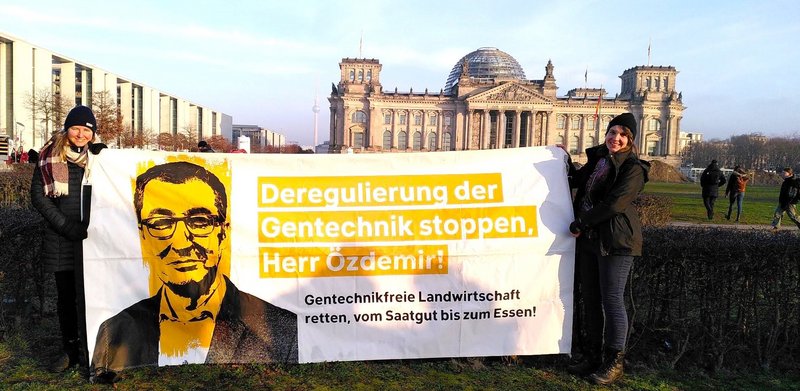News
Bundestag election 2025: What genetic engineering policy will Germany have?
Most of the parties in the Bundestag to date have made statements in their election manifestos on the subject of genetic engineering, and in particular new genetic engineering. Only draft versions of some of the papers, which were knitted with particularly hot needles due to the early election date, are available so far.
What the election manifestos say
The CDU/CSU election poll favourites so far want "practical" regulation of new genetic engineering, which they prefer to call "new breeding technologies". This leaves a lot of room for interpretation, but is probably meant as a general endorsement of the planned EU deregulation.
In contrast, the election manifesto of the SPD, still the Chancellor's party, contains nothing at all on the subject of genetic engineering and plant breeding. Before the last federal election in 2021, the then candidate for Chancellor, Olaf Scholz, explicitly spoke out in favour of freedom of choice and transparency with risk assessment and mandatory labelling.
The Greens are the only party to explicitly name the importance of GMO-free food and its production. Specifically, they demand mandatory labelling for genetically modified seeds and food and speak out against patents on plants, animals, seeds and genes.
The FDP emphasises the opportunities offered by "new breeding methods such as the CRISPRCas9 gene scissors" and wants to make use of them. As long as it was still part of the Traffic Light coalition, the FDP tried to pressure the federal government into agreeing to the EU deregulation plans.
The Left Party wants to ban the cultivation of genetically engineered plants and apply the same regulations to new genetic engineering as to "old" ones - which in practice would mean leaving genetic engineering regulation as it is and dispensing with any de- or re-regulation.
Özdemir remains in favour of freedom of choice, but not minister
Cem Özdemir, still German Minister of Agriculture, reiterated his commitment to transparency and freedom of choice in genetic engineering at the beginning of the week in Brussels on the fringes of the EU Council of Agriculture Ministers. As a result, he would not agree to the new deregulation proposal from Poland, as it still lacks, among other things, a continuous genetic engineering labelling requirement.
But Özdemir's days as Minister of Agriculture are numbered, at least that is certain. No matter how the election turns out, because he has other plans. Insiders also believe it is unlikely that the ministry will be occupied by the Greens again, even if they are part of the government. CSU leader Markus Söder, on the other hand, has already nominated his favourite for this classic CSU ministerial post: Günther Felßner, President of the Bavarian Farmers' Association.
Future federal government also divided on genetic engineering?
But the ministerial appointments will of course only be made in 2025 after the coalition has been formed. With a view to future EU votes, it is possible that not much will change: it is very likely that the next coalition will also have different positions on the deregulation of genetic engineering. And that would mean "abstention", as in the past.
Industry associations launch email campaign in time for the Bundestag election
Several industry associations, such as Bioland, AbL and IG Saatgut, have launched an email campaign coinciding with the election campaign. Using a simple online tool, anyone can send an email directly to the leading candidates of the parties asking them to support labelling and risk assessment for new genetic engineering.
Excerpts from the 2025 Bundestag election manifestos and drafts
CDU
Modern plant breeding. We ensure that digitalisation, precision agriculture and plant breeding can flourish. The regulation of new breeding technologies must be practicable. We support modern breeding instruments such as "smart breeding".
Greens
GMO-free food is important to many consumers. To ensure that this remains possible, all those who want to work without genetic engneering must be able to do so in the future. To achieve this, it is crucial that there are no patents on life: Plants, animals, seeds and genes must not be patented, not even in a digitalised format. And there needs to be mandatory labelling for genetically modified seeds and food.
FDP
We want to utilise the possibilities of new breeding methods such as the CRISPRCas9 gene scissors. Such biotechnological processes expand the agricultural toolbox. They enable us to combine agricultural productivity and environmental protection.
The Left
Plant breeding: Ban patents on life, prevent the cultivation of genetically modified plants. The so-called modern methods of genetic engineering, such as gene scissors, must also be subject to the same controls and regulations as previous methods.
LPB: Overview of the election manifestos for the 2025 Bundestag election (German)

